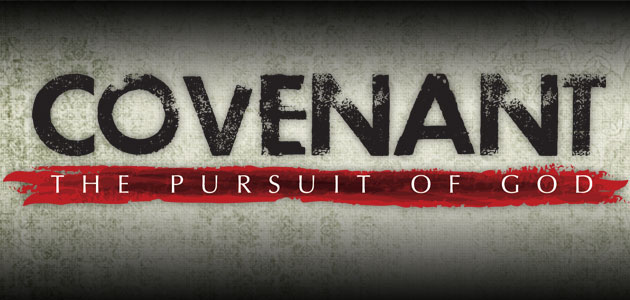Home | About Us | Directions | Bulletins | Sermons & Audio | Cross Of Christ Studies | Classes | Student and Parent Resource Page | Dangers Facing the "Non-Traditional"
Click Here for the Latest Edition of the Auburn Beacon
To Subscribe to
the Auburn Beacon please send an E-mail to:
larryrouse@aubeacon.com

Hear Buddy Payne
Speak in Auburn, Alabama
All Joy and Peace in Believing
![]()
![]()
Our God He is Alive
(Evidences from DNA)
![]()
![]()

The Final Stages of Israel's Apostasy
Adult
Bible Class in Progress - Sunday
Morning 9:30 - Auditorium Class
Planning to Visit Us?
What
to Expect
Current Class
Information
Thoughts To Ponder
Buy truth, and do not sell it, get wisdom and instruction
and understanding.
(Proverbs 23:23)
You will need
the following viewers
to view many of the
files on this site.
![]()
Click here to
download
Adobe Acrobat Reader
![]()
Click here to
download
Microsoft PowerPoint Viewer
University church of Christ
Assembly Times
Sunday
Bible Classes (9:30)
AM Worship (10:20)
PM Worship (6:00 pm)
Wednesday
Bible
Classes
(7:00 PM)
Location
449 North Gay Street
Auburn, AL 36830
Click Here for Specific
Directions
A Heart of Wisdom
by Doy Moyer
“The beginning of wisdom is: Acquire wisdom; and with all your acquiring, get understanding. Prize her, and she will exalt you; she will honor you if you embrace her.” (Prov. 4:7-8).
“Buy truth, and do not sell it, get wisdom and instruction and understanding” (Prov. 23:23).
Wisdom helps restrain us (cf. Prov. 10:19; 29:11), puts boundaries around our actions, and helps us see that serving God is not just about whether something is technically sinful, but is about gaining understanding and skill in the way we make daily choices. Just asking, “Is it a sin?” is elementary. While it is important to know if something is sinful, if that is the only concern, then it is the question of the novice who has little experience in spiritual discernment. Asking, “Is it wise?” is a mark of maturity and growth that comes from those who understand their times, with knowledge of what to do in their given circumstances (cf. 1 Chron. 12:32; Esth. 1:13). If we wish to move beyond the elementary level to a mature person in Christ (Eph. 4:13), then we need to be asking about what is wise. This is at the heart of discerning right from wrong, especially when something isn’t spelled out exactly.
We don’t simply want to avoid what is technically sinful; we want to choose what is positively wise and moves us in the right direction. There is a difference. One can go through life asking about what is sinful, trying to avoid the technical sin, and yet never fully develop a heart and life of wisdom. The one who only asks, “Is it a sin?” is looking for the edge of the line, wanting only to know if he has crossed it and how close he can get to it before going too far. This mentality can dry up the heart, wearing out the desire to do right because what’s across that line just looks too good. It can result in constantly peering over the edge of the line, wishing to take part on the other side while always having to pull up short and never really understanding why. Consequently, growing weary in doing good can become a familiar reality (cf. Gal. 6:9). This is the one who can never really find true joy in serving God because it’s always about what he’s not supposed to being doing. This becomes a religion of “do nots” rather than one of glorifying God.
The ones who seek wisdom not only will avoid the edge of the line, they will develop habits that don’t push that edge at all and will lead them away from the line altogether. The habits of the wise will cause them to lose interest in peering over the edge. Why? Because they aren’t thinking just in terms of avoiding sin and what they can’t do, but in terms of glorifying God and drawing closer to Him (cf. Luke 11:24-26). They know that pushing the edge of the line is not drawing near to God; it’s getting too close to the sin and hedges bets against giving in. The wise are eager to dive into God’s word, to meditate deeply on Scripture (Psalm 1:1-3), and to act in ways that show skillful handling of a life in service. The one who only asks about sin is wanting to stay just on this side of a line while getting as close as possible, but may soon weary of the effort. The tight-rope walker has an extremely difficult task, and he may soon fall because it is easy to lose balance if he develops spiritual vertigo.
Wisdom helps us fill in the gaps in trying to answer difficult questions. For example, the list of the works of the flesh is not exhaustive, but concludes with “things like these” (Gal. 5:19-21). How do we know what “things like these” are, given that they aren’t spelled out? Gaining a heart of wisdom in glorifying God will help us identify “things like these” and recognize that even though not everything is spelled out, we can still skillfully learn to make godly choices when faced with difficult questions. Likewise, the Hebrews writers speaks of the mature, who, because of practice, have their senses trained to discern good and evil (Heb. 5:12-14). Discernment takes a heart of wisdom. Both of these passages show that we cannot approach every issue just by asking what the Bible technically and specifically condemns. Rather, we need to approach every question with a heart of wisdom and learn to discern and make appropriate judgments about those matters that may not be specified. What is the wise thing to do if there are questions?
When we know that something is unwise, and our argument for doing it anyway is, “but it’s not a sin,” then we have missed the point of biblical wisdom. Wisdom isn’t just about avoiding a line to be crossed, but is about positive growth in God’s direction away from those lines. Again, those who are mature are discerning and aren’t only looking for specific condemnations on the other side of a line. They are looking at principles and seeking to draw near to God through their godly choices. Consequently, they won’t want to push the line of what’s questionable; they will want to look toward heaven and see how they can best reflect the image and presence of God.
Other Articles by Doy Moyer
Jesus Emptied Himself: A Basic Approach
"As Long as It Does not Harm Anyone"
Pathetic Dust or a Living Hope
You May be Surprised to Learn
Moralizing Over the Gospel
Alcohol and Wisdom
Brotherly Love
The Logic of Authority
Was Jesus Literally Forsaken?
Baptism and the Blood
The Problem With Creeds
For Past Auburn Beacons go to:
www.aubeacon.com/Bulletins.htm
Anyone can join the mailing list for the Auburn Beacon! Send your request to:
larryrouse@aubeacon.com






